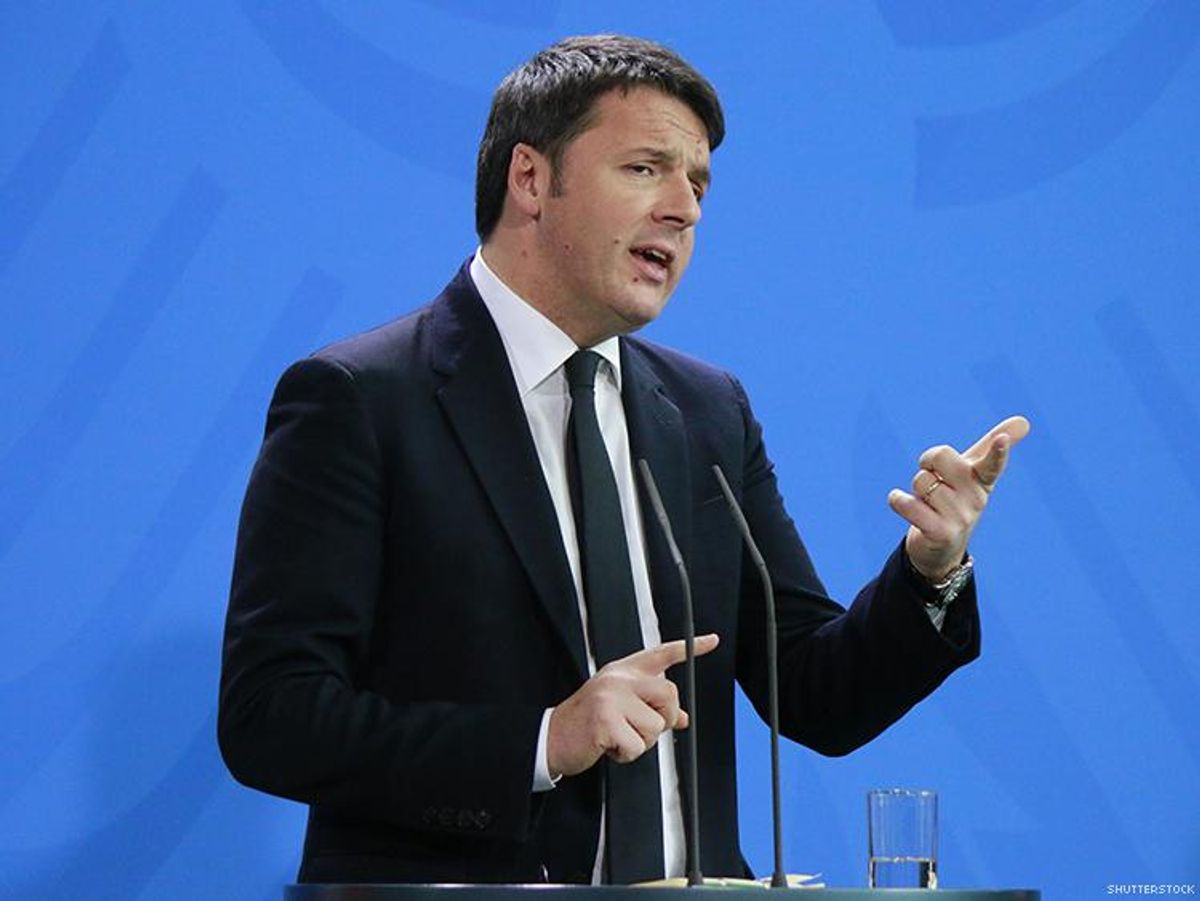As Italy's Parliament considers establishing civil unions for same-sex couples, the nation's prime minister has called for the Roman Catholic Church to stay out of the debate.
Prime Minister Matteo Renzi made the comments Friday on RAI state radio, a day after the head of the Italian bishops' conference recommended that the Senate allow a secret ballot on the civil unions bill, Agence France-Presse reports. Angelo Bagnascoso, the leader of the bishops' group, said this would allow lawmakers to vote in accordance with their conscience and escape pressure to follow their party's position.
"Parliament decides whether or not to allow secret votes ... not the head of the bishops' conference," Renzi said in the RAI interview. "What is there to fear from two people who love each other? Why not give these rights to two people who love each other? The majority of the country is clearly in favor of it."
Indeed, 70 percent of Italians support some form of legal recognition for same-sex couples, AFP notes, although only 24 percent favor adoption rights for these couples. The bill currently being considered would grant limited adoption rights, providing for one of the partners to adopt the other's children, and extending this right to unmarried heterosexual couples as well.
Italy is the only major Western European country without any legal recognition for same-sex relationships, and the European Court of Human Rights has ruled that the lack of such recognition is a violation of human rights law. The Catholic Church's influence is often cited as the reason for Italy's failure to adopt a civil unions or marriage equality law. The church's headquarters, Vatican City, is an independent city-state but is entirely within Rome's borders.
Pope Francis entered the civil unions debate last month in an address to the Vatican court, saying, "There can be no confusion between the family God wants and any other type of union." When he was a cardinal in Argentina, however, he opposed marriage equality but suggested civil unions as the "lesser of two evils." He also said two years ago that the church should at least study civil unions as a way to can provide economic security to same-sex couples, but stopped short of endorsing the concept.
In the past few weeks, there have been massive demonstrations both for and against the civil unions bill. If the Senate passes it, it will go to the other house of Parliament, the Chamber of Deputies.


















































































